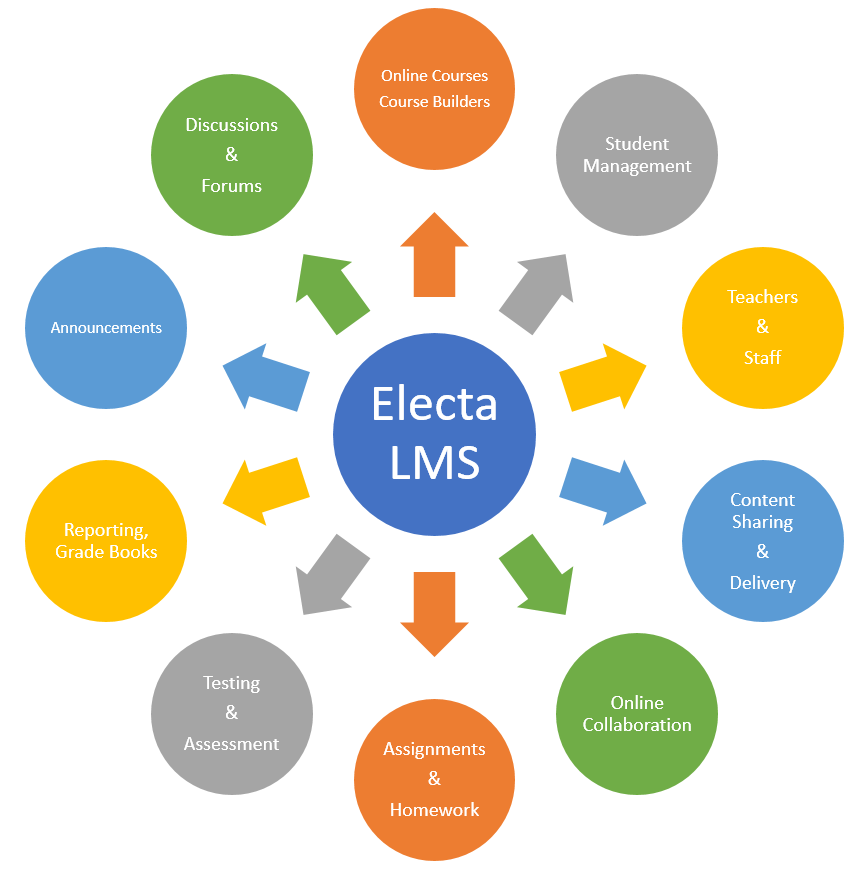LMS SG: Advantages of Taking On a Learning Management System for Your Business
LMS SG: Advantages of Taking On a Learning Management System for Your Business
Blog Article
Selecting the very best Learning Monitoring System for Your Organization
Selecting the optimal Discovering Management System (LMS) for your organization is a diverse decision that requires careful consideration of various components. From defining accurate knowing objectives that reverberate with your calculated vision to reviewing user experience, each variable plays a pivotal function in the overall performance of the system. Furthermore, recognizing assimilation capabilities and guaranteeing scalability for future demands can not be neglected. As organizations make every effort for performance and growth, the selection of an LMS becomes progressively substantial. What are the essential considerations that can influence your decision-making procedure?
Define Your Learning Objectives
Specifying clear understanding purposes is necessary for the effective implementation of a Knowing Monitoring System (LMS) These goals offer as a roadmap, guiding the growth of content, assessments, and overall instructional methods within the LMS. By establishing certain, measurable, attainable, relevant, and time-bound (SMART) goals, organizations can ensure that the understanding experiences are straightened with their strategic purposes and learner needs.
Effective discovering goals need to encapsulate what students are expected to know or be able to do upon conclusion of a course or training program. This quality not only aids in material production but also helps with the analysis of learner progression and the overall performance of the LMS. LMS SG. Distinct purposes allow stakeholders to analyze whether the picked LMS performances and functions line up with their educational goals.
Assess Individual Experience
Once discovering purposes have been developed, assessing individual experience comes to be an important next action in choosing an appropriate Understanding Management System (LMS) Customer experience encompasses the overall contentment and ease with which learners communicate with the system. A well-designed LMS must assist in intuitive navigating, ensuring that customers can locate programs, products, and support effortlessly.
To evaluate user experience, take into consideration conducting usability screening with a representative sample of end-users. This can provide beneficial insights into how learners involve with the platform. Secret variables to assess consist of the LMS's interface style, ease of access features, mobile compatibility, and the clarity of guidelines offered. Customer feedback is essential; gathering surveys or performing interviews can disclose common discomfort points and locations for renovation.
Furthermore, assess the schedule of assistance resources, such as tutorials and assistance centers, which can improve the user experience. The responsiveness of consumer assistance is also essential; prompt help can substantially reduce stress that users might experience. Inevitably, choosing an LMS that prioritizes user experience not only enhances the discovering process however additionally cultivates higher engagement and satisfaction among learners.

Evaluate Integration Capacities
Recognizing the importance of smooth functionality, assessing assimilation capacities is essential when choosing an Understanding Administration System (LMS) An efficient LMS should promote interoperability with existing systems, such as Human Resource Administration Solution (HRMS), Customer Relationship Administration (CRM) systems, and other academic tools. This integration boosts information circulation, reduces management burdens, like it and makes certain click here for more info a natural learning setting.
When analyzing an LMS, take into consideration the sorts of combinations used. Search For Application Programs Interfaces (APIs), Solitary Sign-On (SSO) abilities, and pre-built adapters that enhance assimilation processes. In addition, validate the LMS's capacity to incorporate with third-party devices, such as content libraries or evaluation systems, which can dramatically improve the understanding experience.

Think About Scalability and Adaptability
As companies develop, the capacity of a Discovering Management System (LMS) to range and adapt becomes progressively essential. A scalable LMS can accommodate growth in user numbers, program offerings, and web content without endangering performance or individual experience. As companies broaden, whether with increased workers, new locations, or varied training requirements, the LMS needs to seamlessly grow along with these modifications.
Flexibility is similarly necessary; a reliable LMS must sustain various learning techniques, such as online, combined, and mobile knowing. This flexibility enables companies to react rapidly to arising trends in training and growth, guaranteeing that they can supply pertinent and engaging discovering experiences - LMS SG. Furthermore, the system must offer adjustable features, allowing companies to customize the LMS to their certain demands and branding
In addition, a versatile LMS must integrate easily with existing systems and devices, helping with a cohesive understanding environment. Hence, when choosing an LMS, it is crucial to analyze not only its existing abilities yet additionally its prospective to grow and adapt in positioning with the organization's critical goals and evolving learning requirements. This foresight can considerably boost the long-lasting viability of the chosen LMS.
Evaluation Costs and Budgeting
When evaluating an Understanding Administration System (LMS), evaluating costs and budgeting is important to ensure that the financial investment lines up with the company's monetary abilities and tactical purposes. Organizations should start by determining the overall price of ownership, that includes licensing costs, implementation costs, upkeep, and any added expenditures such as training and technical assistance.
It is crucial to contrast numerous LMS options, as rates versions can differ substantially among vendors. Some systems may provide a subscription-based model, while others might charge an one-time cost. Organizations should additionally take into consideration the scalability of the LMS; as they grow, the price explanation structure might change, impacting long-lasting budgeting.

Conclusion
Picking an appropriate Discovering Monitoring System (LMS) is vital for accomplishing business knowing goals. A thorough examination of customer experience, combination capacities, scalability, and monetary considerations guarantees that the selected LMS straightens with tactical goals and student requirements. By systematically addressing these factors, companies can improve learning end results, help with seamless operations, and support future development. Ultimately, the ideal LMS serves as a crucial tool in fostering a reliable discovering environment and driving business success.
Picking the optimal Learning Management System (LMS) for your company is a diverse decision that needs mindful consideration of various aspects.Defining clear understanding objectives is essential for the successful application of an Understanding Administration System (LMS)Once discovering objectives have been established, reviewing user experience ends up being a vital next step in selecting a proper Discovering Monitoring System (LMS)As organizations evolve, the ability of a Knowing Monitoring System (LMS) to range and adjust comes to be progressively vital.Picking an appropriate Knowing Administration System (LMS) is important for accomplishing organizational understanding goals.
Report this page